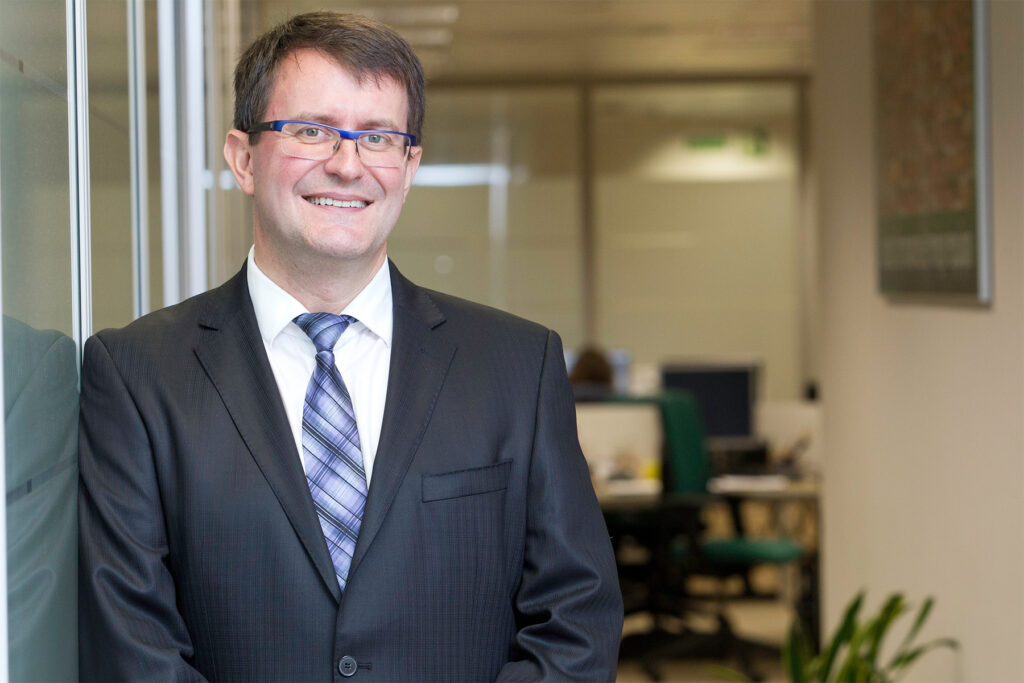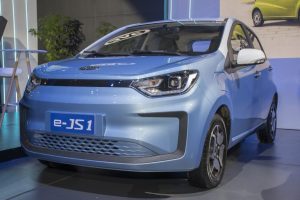Electromobility is advancing at an accelerated pace throughout Latin America and Arval, a BNP Paribas Group subsidiary and one of the leading companies offering mobility solutions, is working to play a leading role on the energy transformation, which is becoming more and more evident every day in countries where it is present through Arval Relsa: Chile, Colombia and Peru.
What are the opportunities and challenges ahead, how can governments promote and enhance strengthening of this promising technology, and is hydrogen part of the future of mobility? On these and other topics we talked with Luc Soriau, Arval Latam Region General Manager, who gave his vision exclusively to Latam Mobility.
In the interview you can read below, Soriau also expresses his perception about the feasibility of electric vehicles versus combustion vehicles on the operational leasing industry, and the current charging infrastructure in Colombia and Chile, countries leading the mobility transformation in Latin America.
Could you mention at least two regulations that would have a positive impact on the development of Arval Relsa’s activities, and the leasing and fleet management sector in general?
I would mention, for example, any tax benefit for passenger vehicles that would encourage companies to use this type of car, since currently only commercial vehicles are available. Also for people to lease vehicles and discover benefits of the system. There is still room to learn about the advantages of operational leasing compared to the classic way of acquiring a car, such as direct purchase or financing through bank loans. It is a matter of moving from car ownership to use backed by a full range of services.
On the other hand, an interesting regulatory issue is to encourage the energy transition by providing incentives to use increasingly environmentally friendly mobility technologies, such as electric or hybrid vehicles, instead of traditional internal combustion engine vehicles, which emit CO2. We have observed that in the U.S. and Europe, regulations based on tax incentives have been an efficient and powerful way to accelerate the energy transition in terms of mobility, helping both companies and individuals to make the leap towards cleaner energies.
From your experience, what can you tell us about the first battery replacement (after 4 or 5 years of use) of electric vehicles when they are managed through operational leasing? Is the expense beneficial compared to combustion vehicles?
Nowadays electric vehicles are manufactured with batteries that have a much longer life than 4 to 5 years. In most new models, the battery life can match the lifespan of the car itself, i.e. more than 10 years. In addition, depending on models and countries, EV manufacturers are generally offering a warranty of less than 30% battery degradation for 8 years and between 100,000 and 160,000 kilometers. Battery degradation is a slow process depending on many factors. To give an example, we generally observe an average degradation of less than 8% during the first 5 years, which remains within the warranty limits and does not require any change.
Another factor to consider is the research and development processes being carried out by the industry to improve battery autonomy, life, recharge time and weight, seeking to reduce their cost. It is true that electric vehicle models’ autonomy was limited by performance and cost, but as time has gone by, technology has improved rapidly, giving way to a new generation that uses, for example, lithium ions or solid state batteries.
Last year, the company introduced the Strategic Plan 2020 – 2025 Arval Beyond. What progress could you mention to date and how are you positioned regarding the goal of having 2 million vehicles in leasing? Based on the fact about the expectation of having 700,000 electric vehicles.
Our plan is already being implemented and we are promoting new mobility solutions to enable our customers to have cleaner technologies. We want to be leaders on electric vehicles, but we are building our strategy step by step in all the countries where Arval is present, according to different market realities. These developments are also taking place in Latin America, where alternative offerings of hybrid and electric vehicles are growing every year. This new offer from car manufacturers combined with our growing experience in electric vehicles in other regions, such as Europe, will allow us to build a great service and mobility proposal.
From your perspective, what is needed and what is going well in the EV charging infrastructure sector in Chile and Colombia?
The electric bus fleet in Chile is the largest in Latin America and the second worldwide, with a total of 676 machines transiting mainly in the capital, which shows that electromobility is advancing. Now, some efforts are required in terms of infrastructure, especially for recharging passenger vehicles. While it is true that charging stations have already been implemented, we must also think about a solution for homes and offices. This will be a challenge for the companies supplying these stations, considering that the volume of electric and hybrid cars will continue to increase day by day, and also for us as a mobility company, because this gives the opportunity to advise our customers on these new energies and offer them innovative solutions, according to their needs and requirements.
The development of charging stations in Chile began by 2019, starting with the Metropolitan Region. The market projects the existence of around 80,000 electric vehicles in the country, and it will be possible to find a charging station on the roads every 60 kilometers, which allows estimating a total of 2,300 points throughout the territory.
In Colombia, the EV infrastructure is very deficient and efforts are already underway to equip 125 electric stations. If some incentives are implemented, such as a reduced annual tax payment, there is still a lot of room for improvement to support the development of this market.
Are hydrogen fuel cell vehicles part of Arval Relsa’s plans? How do you see the hydrogen scenario in Latin America?
The different electric vehicle technologies offered in the market for each country are driven by those governments that decide to support them, and by automakers that choose to design and offer models. As Arval, our mission is to support our customers throughout their energy transition process by promoting the best available technologies.
Concerning green hydrogen, the interest and investments being driven by the Chilean government is promising. As for Latin America, it is still too early to define a precise scenario, considering the supply chain infrastructure and the offer is still limited. We are following the hydrogen issue closely, and when we have more clarity regarding the hydrogen development, we will support mobility at a local level through our operations.




